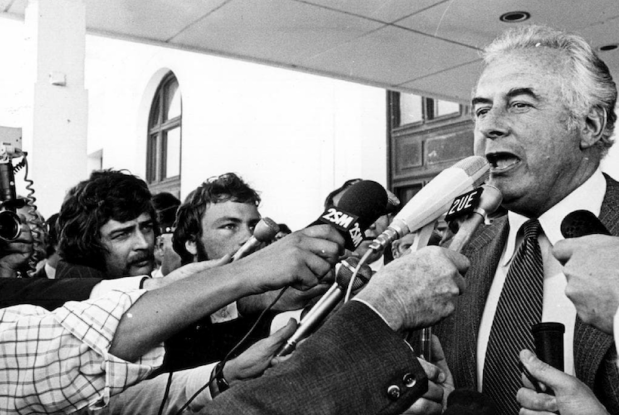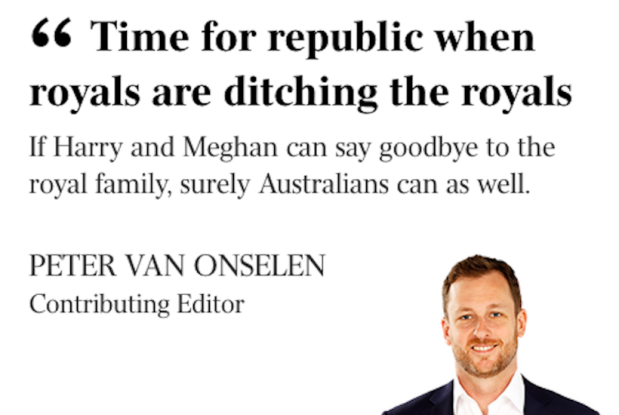Australian Republicans are excited by the High Court’s ruling to release the so-called ‘Palace letters’.
The 200 or so letters, which contain exchanges between the Queen and the Governor-General around Gough Whitlam’s dismissal in 1975, weren’t meant to be released until later this decade.
Whitlam’s November 1975 dismissal is a wrenching episode in Australian political history. As a determined monarchist, I don’t say this lightly – we never want to repeat a prime minister being dismissed by a governor-general.
Sir John Kerr certainly didn’t relish the event. None of the staunch monarchists I know, who are certainly no fans of Whitlam, look back gloating or rubbing their hands at Kerr’s decision.
Indeed, I sense most Australians appreciate that it was a series of serious Whitlam missteps, rather than any Palace manipulation, that led to his sacking.
By November 1975 Whitlam couldn’t pass supply – what Americans call ‘a government shutdown’. His attempts to borrow funds outside the Treasury through dubious intermediaries clearly showed poor judgement. And it violated opposition leader Malcolm Fraser’s principle to keep the government on life support if it could avoid ‘reprehensible and extraordinary events’.
Whitlam did not want to step down. Or call a full election.
This clearly left Kerr in an impossible position. Acting within the powers of the office, he steered to where democracies need to go in such times of uncertainty – the people.
“Within a few weeks,” noted John Howard, “the Australian people could decide whether or not they agreed or disagreed with Mr Whitlam or Mr Fraser”. They strongly disagreed with Whitlam.
While republicans pin their hopes on the Palace letters there is, ultimately, only one transmission — from her private secretary Martin Charteris — that matters.
“Her Majesty, as Queen of Australia,” he wrote at the time, “is watching events in Canberra with close interest and attention, but it would not be proper for her to intervene in person in matters which are so clearly placed within the jurisdiction of the Governor-General by the Constitution Act.”
It’s the response that hoses down any reference to Palace interference and puts to rest so much of what animates the modern republican movement.
The ultimate irony here is that, if republicans get their way, the chances of a future Whitlam-type dismissal certainly won’t abate.
Any Australian head of state selected by public expression – whether by politicians or by a ‘council of elders’ – will inevitably be subject to politics.
Even Malcolm Turnbull attempted to bring Peter Cosgrove into a party room ballot to undermine his rival’s chances. Would the governor-general have stayed clear if they saw themselves as acting on a public mandate? Or indeed a political ally of the prime minister?
Australians know the answer. An elected leader will act and respond very differently to one that’s appointed.
Our current arrangements – sparing but awesomely powerful – ensure that government shutdowns and other impasses can be overcome.
It also means that politics stays within politics. And that the Governor-General, and her majesty, can continue to rise above.
Sean Jacobs is a spokesman for the Australian Monarchist League.
Got something to add? Join the discussion and comment below.
Got something to add? Join the discussion and comment below.
Get 10 issues for just $10
Subscribe to The Spectator Australia today for the next 10 magazine issues, plus full online access, for just $10.


























Comments
Don't miss out
Join the conversation with other Spectator Australia readers. Subscribe to leave a comment.
SUBSCRIBEAlready a subscriber? Log in